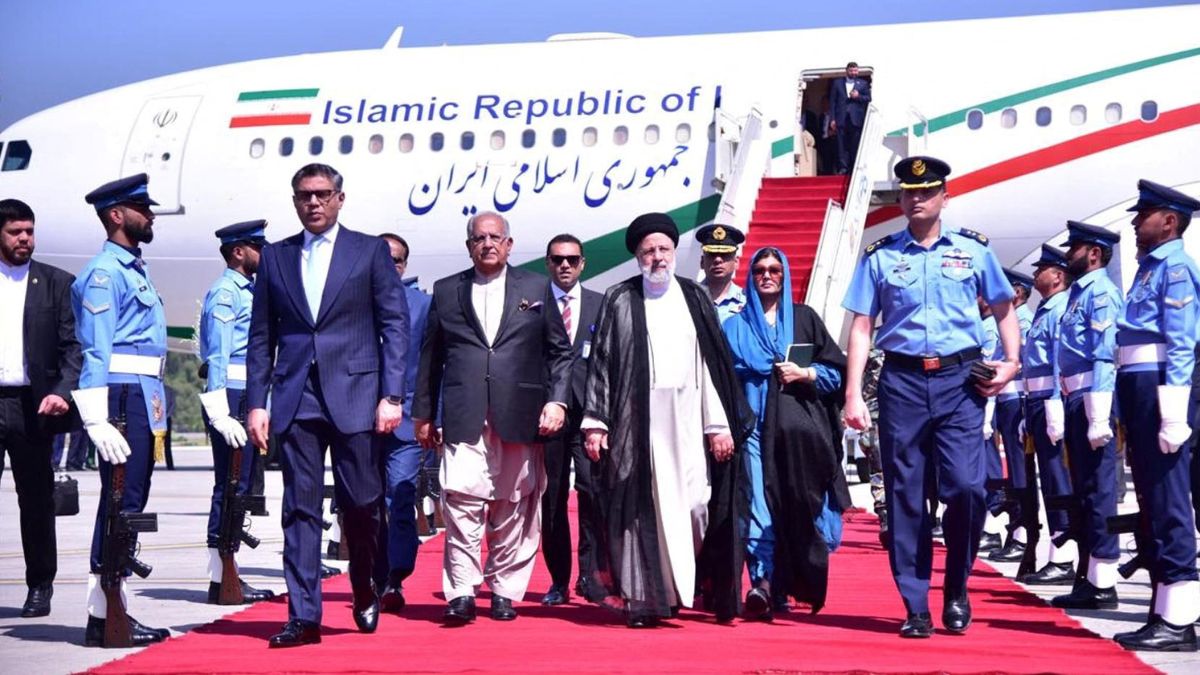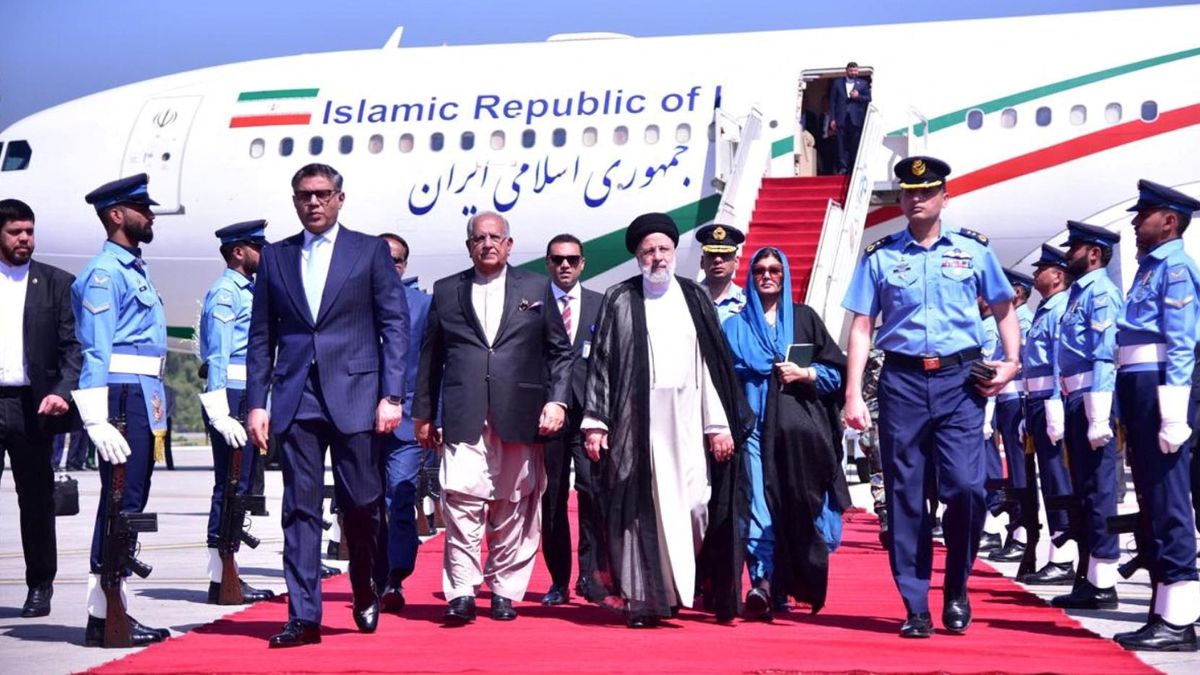The world waits with bated breath as to what Israel’s counter will be to Iran in response to its weekend attack. On Tuesday (16 April), Israel’s war five-person Cabinet was locked in discussions inside the Kirya over how to respond to Tehran. This was the third such meeting to happen since Saturday’s unprecedented strikes, which brought into the open a years-long shadow war.
Prime Minister Benjamin Netanyahu has vowed retribution for the drone strike despite countries, including the United States, urging for restraint. It is believed that the Cabinet is focusing on the timing and the scale of Israel’s response.
While details of an impending attack have not been revealed, Israeli officials were quoted as telling NBC News that a counteraction would definitely take place, saying a failure to act would signal weakness and encourage further attacks by its arch-enemy.
As Micky Aharonson, former senior director for foreign policy on Israel’s national security council, told The Telegraph: “The question now is: What is the right policy? What would deter? What would cause less harm to those who are uninvolved? Who would support [Israel] and who would be part of the action?”
As Israel mulls its option and the risks involved, here’s few of the possible options.
Airstrike on Iran’s nuclear facilities
Perhaps the most aggressive way for Israel to counter would be to launch direct airstrikes on Iran’s nuclear facilities. However, this would lead to Iran lashing out at Israel again, potentially triggering a regional war that the US , Europe and Arab states are so keen to avoid.
This kind of attack gained traction when the head of the United Nations nuclear watchdog, International Atomic Energy Agency (IAEA), expressed concern about Israel possibly targeting Iranian nuclear facilities. When asked about the possibility of an Israel strike on Iranian nuclear facilities, IAEA chief Rafael Grossi said: “We are always concerned about this possibility.”
However, this option is easier said than done. This is because most of Iran’s nuclear facilities are hidden deep underground.
But Israel has the know-how, as they have carried out attacks in the past; they bombed an Iraqi reactor in 1981 and a Syrian nuclear facility in 2007.
Another option for Israel would be Iran’s Bonab Atomic Research Centre, situated close to Israel. While it’s one of Iran’s less important nuclear facilities, hitting it would send a strong signal about Israel’ s military capabilities.
Target military infrastructure
Another option available to Israel is striking at Iran’s various military facilities. Sima Shine, who formerly headed the Mossad intelligence agency’s research division, told Bloomberg that such an attack would send a message of deterrence by hitting Iranian soil while minimising casualties.
Experts have stated that Israel could take out IRGC commanders or target weapons and drone factories and supply lines, which would effectively choke Iran’s war economy.
Defence pundits have stated that killing senior commanders could have some psychological warfare impact as well.
If Israel chooses such an option, it wouldn’t be the first, notably. In 2022, former Prime Minister Naftali Bennett had claimed that Israeli forces destroyed a drone base in Iran under his directive.
Oily matters
Iran is a big producer of oil; it is a part of OPEC. And if Israel wished to hit Iran, it could opt for targeting the country’s oil refineries. This in turn would hit the country’s economy. While this is an option, it may not be the most strategic.
This option could also upset Western allies, as it would lead to volatility in global petrol prices.
Hitting Iran’s proxies
Instead of taking on Iran directly, Israel could also consider hitting Iran’s many proxy groups, which together are known as the ‘ Axis of Resistance ’. These include Hezbollah in Lebanon, and Houthis in Yemen.
Such an attack, experts believe, would make it difficult for Tehran to directly blame Tel Aviv.
And if not these, then Israel could use this opportunity to completely wipe out Hamas — the terrorist group which receives backing from Iran — that operates mainly in the Gaza Strip. However, The Telegraph reported that this won’t be easy, as Hamas goes beyond just an organisation — it is an ideology.
Wage a cyber war
If a military option is not something that Israel is considering, it could look at carrying out cyber warfare against Iran.
In fact, Israel is no stranger to this method and it is believed that Tel Aviv has carried out numerous cyberattacks in Iran over the years, on infrastructure ranging from petrol stations to industrial plants and nuclear facilities.
Such an attack would be most visible in areas such as energy production or flight services. However, former intelligence officials say they believe Israel would avoid attacks on infrastructure such as hospitals to reduce the impact on the general population.
Isolate Iran diplomatically
While it mulls its military response, Israel is already ramping up its efforts to further isolate Iran through diplomatic channels. Many experts have noted that Iran’s attack over the weekend turned out to be a miscalculation and that the nation has given Benjamin Netanyahu the upper hand.
Shortly after the attack on Saturday, at an emergency UN Security Council, demanded that the world body punish Iran for its actions. “Today, the council must take action,” Israel’s UN envoy, Gilad Erdan, told the Security Council. “Condemn Iran for their terror; trigger the snap back mechanism and reimpose crippling sanctions; designate the Iranian Revolutionary Guards Corps as a terror organisation. Action must be taken now — not for Israel’s sake, not for the region’s sake, but for the world’s sake.”
The US, Israel’s close ally, on Tuesday announced that it would impose new sanctions on Iran’s missile and drone program. White House national security adviser Jake Sullivan said that the new sanctions would target entities supporting the IRG and Iran’s defence ministry. Additionally, Treasury Secretary Janet Yellen vowed that the US “will not hesitate” to inflict economic punishment in response to Iran’s attack.
The G7 is also considering sanctions with the goal of isolating Iran internationally and increasing economic pressure on the regime.
As of now, the wait-and-watch game is on for now. Only time will tell if and when Israel will respond to Iran.
Read our full coverage on the Iran-Israel conflict
- Iran vs Israel: How the two countries went from friends to foes
- Iran-Israel tensions: What’s at stake for India?
- How Iran’s attack on Israel could affect trade, oil prices and daily life
- Iran vs Israel: Which country has the better, bigger military?
With inputs from agencies


)




)
)
)
)
)
)
)
)